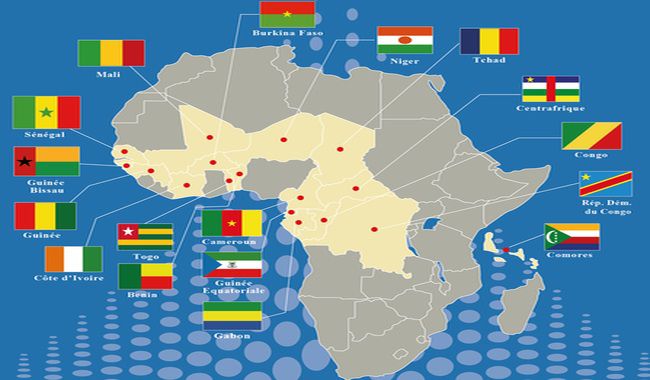On May 21, 2014, the late Mandjara OUATTARA, an Ivorian economic operator attempted to set herself on fire in front of the Presidency of the Republic of Cote d’Ivoire[1]. She died a few days later from her injuries. The reason for this irrational act of desperation was the settlement of his outstanding debts dating from 2007 to 2010 by the State of Côte d’Ivoire, which would amount to more than five billion (5,000,000,000) CFA francs. These receivables would arise from the performance of several contractual obligations on behalf of public companies or companies with public participation. Before carrying out her disastrous act, she would have, according to the comments reported by the national press, addressed to the Ivorian head of state at the time, a final letter containing her grievances which obviously, was not enough to get her win.
In a legal context of harmonization of business law which confers on the State of Côte d’Ivoire, its dismemberments or similar structures, and on the entities mandated for the execution of public service missions immunities from execution, recovery forced -as opposed to the amicable recovery- of debts to their prejudice appeared at this period as a utopia.
At this stage, it is necessary to provide a definition of the legal concept of immunity from execution. Immunities from execution can be defined as “a personal privilege which the law grants to certain debtors to protect them from any measure of execution. They exempt the debtor-beneficiary, because of his quality, from any measure of forced or conservatory execution on his assets, at the same time removing the said assets from the general pledge of the creditors and thus making them unseizable: if the debtor does not does not execute his debt spontaneously, he cannot be compelled to do so”[3].
Immunity from execution in the legal and legal sphere of OHADA is established by article 30 of the UNIFORM ACT ON THE ORGANIZATION OF SIMPLIFIED PROCEDURES FOR COLLECTION AND MEANS OF EXECUTION, paragraph 1 of which provides that: ” Forced execution and protective measures are not applicable to persons who benefit from immunity from execution. “. However, Article 30 of the AUPSRVE fails to designate by name the persons who benefit from this immunity from execution and does not specify in any way the reference to national law for the determination of these.
Consequently, the power to determine the beneficiaries of immunity from execution as well as the conditions of enjoyment of this legal protection will ipso facto be vested in the Common Court of Justice and Arbitration (CCJA) through its Jurisprudence. This case law will know different eras.
The first approach of the CCJA will be to grant immunity from execution to all companies or public entities considered as such by the national laws of the States, and this, in an absolute manner, without restriction, through a judgment of principle pronounced July 7, 2005 in the so-called “Togo Telecom” case[4].
Then, reviewing its position following the strong criticism of which its decision was the subject[5], the CCJA operated in another judgment of principle “MBULU Meseso c/ Societe des Grands Hotels du Congo SA (SGHC)”[ 6], this time dated April 26, 2018, a distinction between public companies under private law and public companies under public law, excluding semi-public companies from the benefit of immunity from execution[7].
The reasoning of the Court to justify this jurisprudential reversal highlighted two cumulative conditions for a public company or legal person governed by public law to be a legitimate beneficiary of immunity from execution: the company must be majority or wholly owned by the State and the company must not be constituted in the form of a legal entity governed by private law[8].
This reasoning will be taken up later in several judgments, in particular that delivered in the wake of May 28, 2020 “SOTRA v. SONAREST State of Côte d’Ivoire”[9], reaffirming the position of the Court on the question.
In this continuity, several judgments have recently been rendered on the question[10], the most recent of which is that of March 03, 2022 (CCJA, 1st Ch. judgment no. 060/2022 Générale des Carrières et des Mines, GECAMINES SA c/ SORETAC SARL of March 03, 2022) whose quintessence of the device is to reiterate that a Limited Company (SA) – having a form of private law – cannot benefit from immunity from execution even if its capital is entirely made up of funds and that it has been identified as a public enterprise by national legislation.
In conclusion, and in view of all the above, it is now possible for creditors of so-called public companies to recover their debts through the legal process offered by the uniform act on recovery.
This CCJA solution is, in our view, a lifesaver for the legal climate and security of business in sub-Saharan Africa in view of the deep and almost permanent interference in the economic life of so-called public companies or legal persons or those having acquaintances with the State in the “disguised” form of legal persons of private law. This factual and legal situation also poses a problem of competition with traditional commercial companies owned by private individuals. Nevertheless, this is already a major step forward in the Positive Community Law of OHADA.
Despite a few scattered decisions of national jurisdictions going against the constant case law of the CCJA on immunity from execution[11], it is now authentic and law. Former US President JFK said “woe to him who is right too soon”; The late Mandjara Ouattara was probably right too soon.
By Clément N’Guessan Kouame
[1] https://news.abidjan.net/articles/498585/cote-divoire-pour-reclamer-sa-creance-une-femme-tente-de-simmoler-par-le-feu-devant-le-palais-presidentiel
[2] https://www.rfi.fr/fr/afrique/20140527-cote-ivoire-mort-mandjara-ouattara-suites-blessures-kone-rdr
[3] Immunité d’exécution, obstacle à l’exécution forcée en droit OHADA contre les entreprises et personnes publiques ? Désiré-Cashmir KOLONGELE EBERANDE, Docteur en droit de l’Université Paris 1 Panthéon-Sorbonne Professeur aux Universités de Kinshasa et Catholique du Congo Directeur du Centre d’Expertise juridique et d’actualités en droit des affaires (CEJADA), p.3, https://www.ohada.com/uploads/actualite/1961/immunite-d-execution-eberande-kolongele.pdf
[4] CCJA, arrêt n° 043/2005, du 7 Juillet 2005 : A. Y. et autres c./ Sté TOGO TELECOM, recueil de Jurisprudence de la CCJA, no 6, juin-décembre 2005, p. 25
[5] Voir notamment Filiga Michel SAWADOGO, “La question de la saisissabilité ou de l’insaisissabilité des biens des entreprises publiques en droit OHADA” (à propos de l’arrêt de la CCJA du 7 juillet 2007, Affaire Aziablévi YOVO contre Société Togo Telecom)
[6] CCJA, arrêt n° 103/2018, du 26 avril 2018 : MBULU Meseso c/ Societe des Grands Hotels du Congo SA (SGHC) et 10 autres
[7] https://www.ohada.com/uploads/actualite/4188/Arret-CCJA-n-103-2018-26-avril-2018.pdf
[8] Il ressort des énonciations de l’arrêt de principe rendu le 26 avril 2018 par la CCJA que :
« Attendu que l’article 30 de l’Acte uniforme susvisé pose, en son alinéa 1er, le principe général de l’immunité d’exécution des personnes morales de droit public et en atténue les conséquences à l’alinéa 2, à travers le procédé de la compensation des dettes qui s’applique aux personnes morales de droit public et aux entreprises publiques ; qu’en l’espèce, il est établi que le débiteur poursuivi est une société anonyme dont le capital social est détenu à parts égales par des personnes privées et par l’Etat du Congo et ses démembrements ; qu’une telle société étant d’économie mixte, et demeure une entité de droit privé soumise comme telle aux voies d’exécution sur ses biens propres ; qu’en lui accordant l’immunité d’exécution prescrite à l’article 30 susmentionné, la Cour de Kinshasa/Gombe a fait une mauvaise application de la loi et expose sa décision à la cassation ; qu’il échet de casser l’arrêt déféré et d’évoquer »
[9] CCJA : arrêt n° 190/2020 du 28 mai 2020 • SOTRA c/ SONAREST Etat de Côte d’Ivoire
[10] CCJA , 2e Ch., arrêt n° 76/2021 du 29 Avril 2021 ; CCJA , 3e Ch., arrêt n° 139/2021 du 24 Juin 2021
[11] Voir Cour d’appel de Commerce





